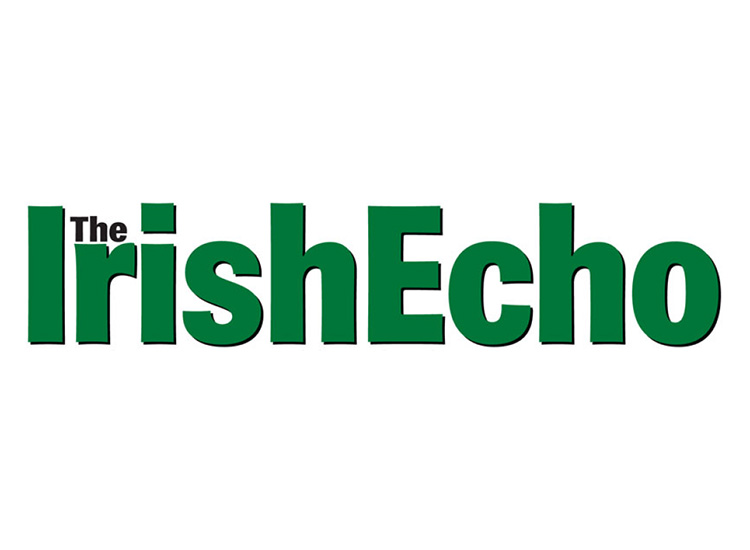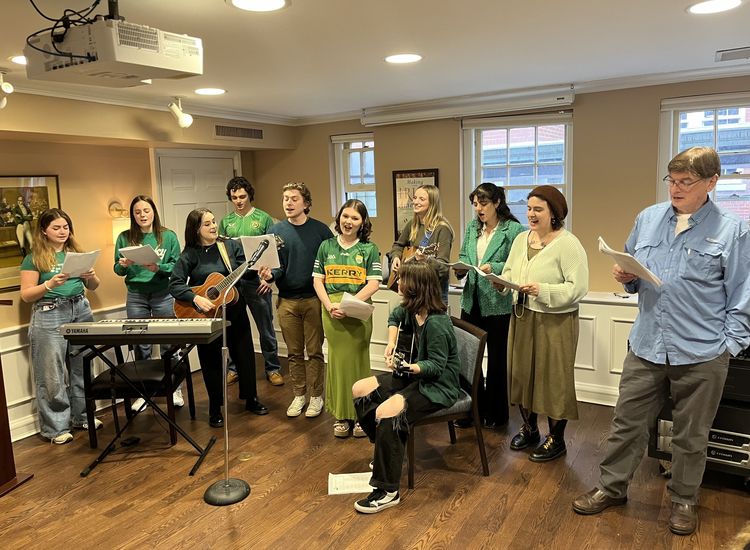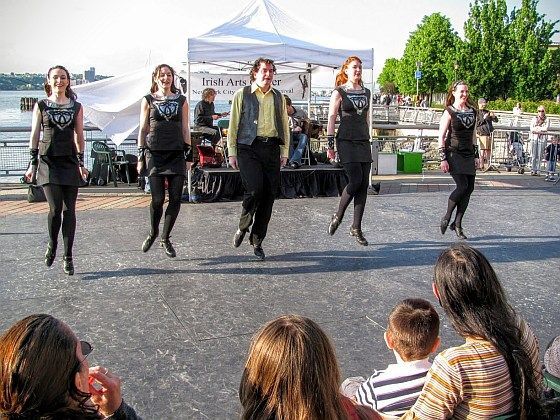[caption id="attachment_71426" align="alignright" width="300" caption="Caroline Clarke."]
The Irish nanny may be becoming extinct, judging from the "National Nanny Training Day," which took place on Saturday last.
Not one of the 33 regional events around the U.S. was organized by someone Irish, and it is believed that relatively few Irish were among the 1,000 or so attendees at NNTD, organizers said.
Once "Irish" and "nanny" were so synonymous that the New York Times once dubbed the Irish Echo, "The Nanny Times." It still is, though the nannies who advertise are rarely Irish.
the association of Irishness and being a nanny was not unlike how, in the 19th century, maids were all nicknamed "Biddies," regardless of where they were from, or what they were called.
Now, it seems you might have almost as much chance of meeting someone called Biddie as an Irish woman working as a nanny - the term lately preferred for full-time babysitters.
"I rarely meet an Irish nanny," said Janet Dudley, from Jamaica, one of about 30 nannies who attended Saturday's event for the New York area, held in the ironically selected Manhattan cabaret venue, "Don't Tell Mama."
Everyone at the event, both on the nanny and the agency side, agreed, if asked, that there has been a massive decline in Irish women working as nannies.
Irish nannies once made up probably half of the business, said Mellisa Peckham, placement manager of the Wee Care Nanny Agency in Stamford, CT, which places more than 100 nannies a year in Connecticut, New Jersey, Westchester and Manhattan.
"Now, if someone said they'd like an Irish nanny, I might have one or two with an Irish last name, but no accent," she said. Most date the peak of the Irish nanny phenomenon to the early 1990s.
Even The Irish Agency, a nanny placement firm in Manhattan, which did not attend NNTD, notes on its website that it: "mainly referred Irish and English nannies in the beginning but that has since changed."
Beth Lehmann, who organized NNTD in New York, claims distant connections to Belfast. The Seattle native, who now lives in the Irish heartland of Woodlawn, said, "I met about six Irish nannies on the train home last week, but none of them came." So they are still out there it would appear.
The low participation of the Irish in NNTD, however, seems to go beyond the fact that the Irish reportedly tend not to get involved in nanny organizing.
"There was a huge exodus in the late nineties," said Denyse Kapelus, who runs the Professional Nannies Institute on Fifth Avenue. She noted that she started her business in 1986 by advertising in the Echo, just as Dudley, the Jamaican nanny, said she got her first placement through the Echo.
Once The Celtic Tiger began to roar, many nannies in the U.S. returned to Ireland, according to Kapelus and other agency owners.
The Irish economy is back in the doldrums again, but the Irish are not returning to assume nanny jobs in the U.S., several sources agreed.
"Immigration law is so tight now," Kapelus said by way of explanation. "No green card was no problem in the past. That's no more."
Caroline Clarke, from Baileborough, County Cavan, has seen many other Irish nannies leave in her 20 years here.
"There's been a huge drop-off. The Irish nanny is becoming obsolete," she said.
That the Irish are quitting nanny work seems only slightly to do with them moving up the career ladder, although Clarke agreed that more recent Irish immigrants, raised in prosperous times, might have turned up their noses at the job.
Niall O'Kelly, spokesman for the Irish Business Organization, said, "Anecdotally, at least, Irish immigrants in the past 10 years were mostly college-educated, looking for experience in their chosen professions." Definitely since the recent economic crisis, the typical immigrant the IBO encounters is a graduate on a J-1 visa, since those are the easiest to get," he said.
Many nannies said that their line of work is, in fact, relatively well paid. "It's much better than a daycare or even teaching," said Leah Corrigan, one of two Irish-American nannies who attended NNTD in Cleveland.
The Ohio city has, she said, "a big population that is of Irish extraction, but not many who are nannies". Corrigan describes herself as "one hundred percent Irish, third generation."
Corrigan last year gave up being a receptionist to become a nanny, and soon she will move in with the family she works for in the Cleveland suburb of Shaker Heights. Asked had she any trepidation that she might feel like "the help," Corrigan said, "No, I very much feel part of the family."
Whatever changes are in store for the role of nanny, it's not one Irish men are likely to assume. Men are starting to enter the business, but no one consulted had ever heard of a male Irish nanny, except Caroline Clarke.
"We have one at work who I think has some Irish heritage. We call him a 'manny'," said Clarke, who works for a Manhattan family with five nannies covering different shifts.
However, Peckham of Wee Care, who also serves on the board of APNA, a national coalition of nanny agencies, laughed good-humoredly at the idea of an Irish man as a nanny.
"Yeah, one walked in the other day with a leprechaun!" she said, adding, "don't print that. It sounds mean."









